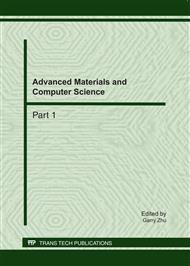p.998
p.1002
p.1007
p.1012
p.1019
p.1024
p.1029
p.1033
p.1038
Analysis of Smart Antenna Interference Suppression Base on LMS Improved Algorithm
Abstract:
Smart antenna technology can increase channel capacity, improve spectrum efficiency and enlarge cover area by using its spatial diversity ability , which greatly improve system performance . A least mean squares (LMS) is posed for the smart antenna adaptive interference suppression system based on the training sequence. Also , the least mean square (LMS) and least squares (RLS) algorithm are proposed for the design and simulation about interference suppression and compare and analyze the result which can prove the effectiveness about algorithm in TD-SCDMA system .According to the results, the new method with a faster convergence speed, which doesn`t matter with interference environments, is better than LMS.
Info:
Periodical:
Pages:
1019-1023
Citation:
Online since:
April 2011
Authors:
Price:
Сopyright:
© 2011 Trans Tech Publications Ltd. All Rights Reserved
Share:
Citation:


